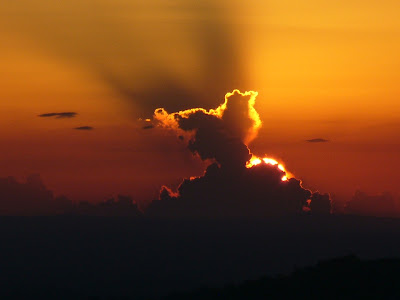
2 December 2008
The terror attacks in Mumbai, India has shaken the subcontinent. India's vulnerability to terror attacks is once again made starkly visible. But is this India's 9/11? That is a question being debated currently in academic, political and civil society circles.
Here is my take on the subject. Terrorism is not new to India. People have suffered different types of collective violence including terrorism from many invasions, colonizations (sometimes in active collusion by some local elites). It has its share of terrorism by different groups as well as the state or political parties. We only have to read history and listen to the voices of the victims to know who all have engaged in terrorizing in different times against different people.
Even the Mumbai attacks can be viewed from different angles. There is the attack at the train station, attack on the Taj, Trident hotels and Leopold Cafe, there is the attack on the senior counter-terrorism officers who were investigating the Hindu terror groups. It would be fair to expect professional investigation would be carried out to find out the actors/organizations/agencies behind the different attacks. I am sure high-powered committees will do their job for lobbying for more unified command over intelligence gathering and analysis; securing of all porous borders; setting up of special and more autonomous units to combat with terrorists; and the ever present possibility of carrying out attacks on some training camps within Pakistan.
Some politicians have turned the heat on the angered and vocal civil society and common people who dare to point out the systemic failure and holding responsible political leaders and bureaucrats who refused to act on intelligence provided or did not have sufficient preparations or equipment despite the terror warnings received. Though the armed forces and the marine commandos did their job well given the constraints they faced, same cannot be said about the collective failure on part of the police, internal security arrangements, port operations and resources available for managing crisis situations. The coming weeks and months will open a can of worms that would be very hard for citizens to digest. The unwillingness to pursue some leads to its logical conclusion will definitely hamper the process of uncovering all actors.
Political parties are busy fighting elections and it would take a mammoth effort and great restraint from all parties to not exploit the nations vulnerability to terror attacks to undermine democracy, secularism, checks and balances and consensus based politics that is required in the age of coalition politics. Any attempts to fast-track procedures that actually require consensus among major political parties and civil society will only serve to undermine substantive and procedural democracy. Action, hot-pursuit and the forces required to handle such situations is definitely a priority issue and much rhetoric and some action are expected. As important to discuss is the need to ensure constitutional principles, rights and freedoms. On this regard it would be foolish to attempt a "War on Terror" approach as outlined, authored and prescribed by the USA.
Many in the civil society are hoping that good sense will prevail. Time will tell if India is able to take its own path in handling terrorism. If India is not impacted as much as some of the Western nations in the economic-tsunami unleashed by the casino-capitalists and banksters - it is due to the good sense that prevailed decades ago to put in checks on banks, insurance firms, and regulations over the market forces and safeguarding of employee rights. A similar measured and balanced approach that is based on sound judgement, strategy, precision and professionalism in action and contextual clarity is the need of the hour, more than buying a blue-print of action from elsewhere, especially the USA.
Currently the military-industrial complex is not a major stake-holder in determining strategies in combating terror in India, and one can only hope that it remains that way.
No comments:
Post a Comment